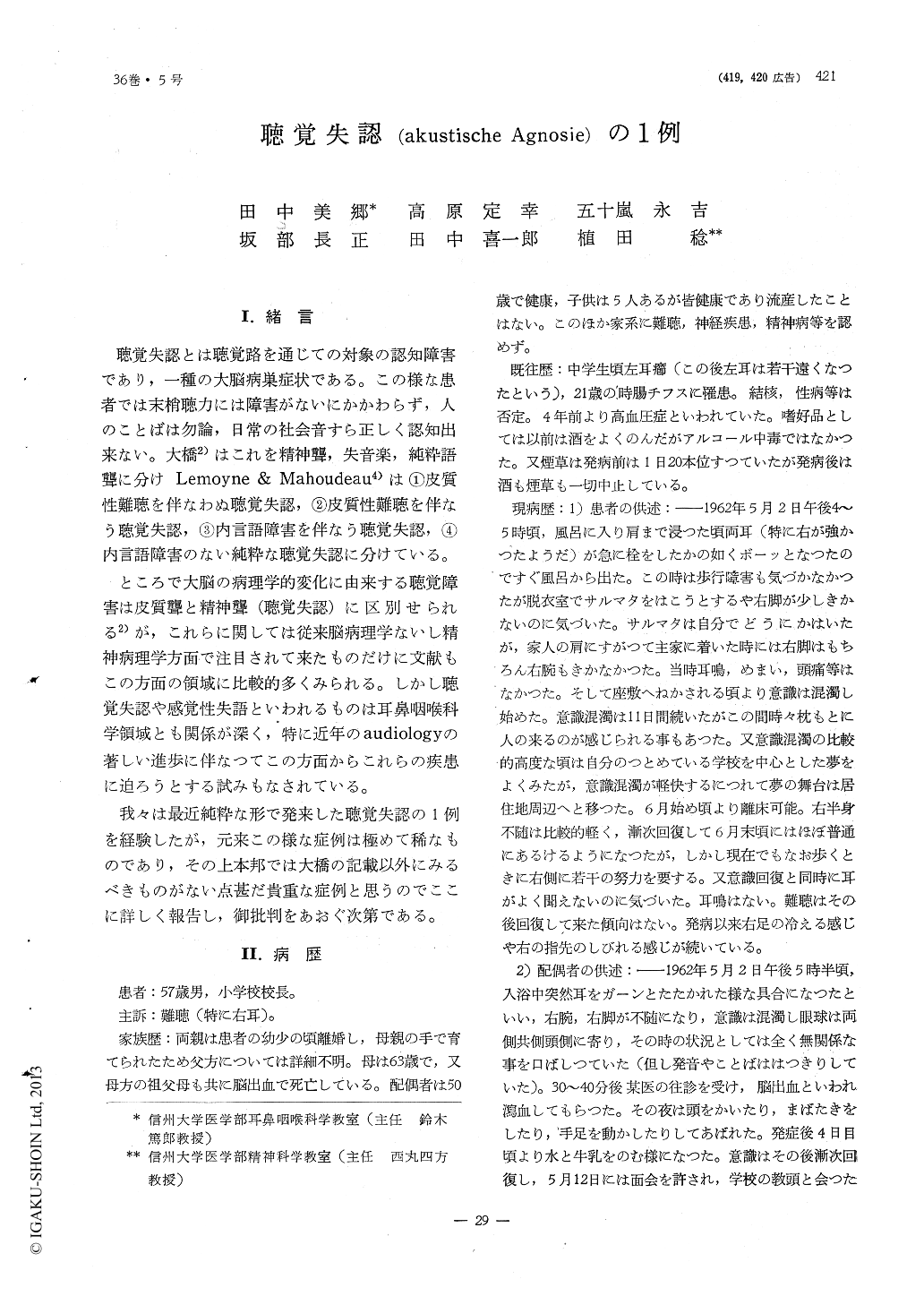Japanese
English
- 有料閲覧
- Abstract 文献概要
- 1ページ目 Look Inside
Ⅰ.緒言
聴覚失認とは聴覚路を通じての対象の認知障害であり,一種の大脳病巣症状である。この様な患者では末梢聴力には障害がないにかかわらず,人のことばは勿論,日常の社会音すら正しく認知出来ない。大橋2)はこれを精神聾,失音楽,純粋語聾に分けLemoyne & Mahoudeau4)は①皮質性難聴を伴なわぬ聴覚失認,②皮質性難聴を伴なう聴覚失認,③内言語障害を伴なう聴覚失認,④内言語障害のない純粋な聴覚失認に分けている。
ところで大脳の病理学的変化に由来する聴覚障害は皮質聾と精神聾(聴覚失認)に区別せられる2)が,これらに関しては従来脳病理学ないし精神病理学方面で注目されて来たものだけに文献もこの方面の領域に比較的多くみられる。しかし聴覚失認や感覚性失語といわれるものは耳鼻咽喉科学領域とも関係が深く,特に近年のaudiologyの著しい進歩に伴なつてこの方面からこれらの疾患に迫ろうとする試みもなされている。
A case of auditory agnosia caused by cerebral hemorrhage in a man, aged 57, is reported. No abnormality was found in the patient's intellect, peripheral hearing, inner language, word-reading, word-writing of ability of copying; but, failed to comprehend a spoken language (pure word-deafness) as well as numbers. He also failed to recognize noises and musical tones. This condition has a semblence to Munk's psychic deafness. The patient's personality and the quality of his voice showed changes since the onset of the disease.

Copyright © 1964, Igaku-Shoin Ltd . All rights reserved.


